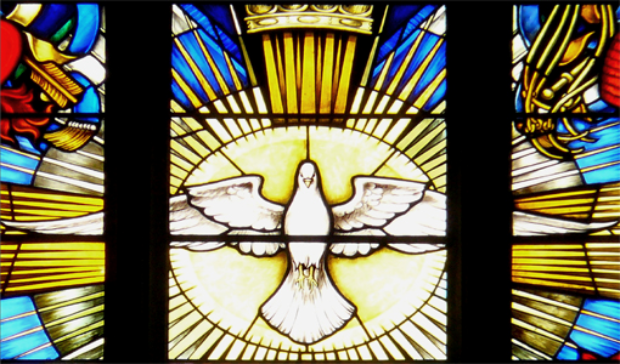Pope John Paul II celebrated the silver jubilee of his pontificate this year, and every Catholic can well attest to the incredible blessing his service has been to the Church and all the faithful. It’s not an exaggeration to say that much of what we’ve accomplished in Catholic Studies is due largely, if indirectly, to his influence among the younger generation.
It was this influence especially that prompted several faculty to gather to discuss two of his more important encyclicals pertaining to the academic life and intellectual pursuits in general: Veritatis Splendor and Fides et Ratio.
Dr. Stephen Long of the St. Thomas Philosophy Department, and Dr. Christopher Thompson, Catholic Studies department chair, joined forces to host a three-day colloquium on these initiatives. Thanks to a generous grant from the Lilly foundation and support from the Center for Catholic Studies, approximately 15 faculty from various universities and disciplines from around the United States were able to gather to discuss the influence of these works. Several students from our new and burgeoning graduate program were able to join the sessions as well.
The morning sessions were conducted in a kind of tutorial fashion with senior scholar Father Romanus Cessario, O.P., leading a twohour reflection on Veritatis Splendor. The afternoon sessions consisted of several extended conversations around various themes, each developed by a particular professor from his or her respective discipline. The overall conference was designed with the special intention of creating a climate of extended conversation among committed Catholic faculty, with the hope of creating some interdisciplinary connections among their research. Faculty from around the country, as well as several from our own program, displayed just the kind of intellectual generosity we are seeking to foster within the academy.
Many of those outside of higher education might be surprised to see deliberate efforts to create such a climate. After all, doesn’t this interaction happen all the time? As a matter of fact, the answer is “no” for the most part, and one of the things Catholic Studies is explicitly hoping to address is the fragmentation among the various disciplines within the overall university setting. What in the past may have been conducted in a more integral setting, university education now is conducted in a much more diverse and expansive field of inquiry. It might not be unusual, nowadays, for faculty to be largely unaware of the kind of research and conversations that might be going on among colleagues even within their own department, much less disparate fields from across the university.
This search for a more unified climate of interaction around the central, animating themes of the Catholic tradition is precisely what we are seeking to realize in our efforts, and is what John Paul II has been encouraging in his encyclicals addressing academic settings.
Catholic intellectuals, in order to be faithful to the vocation of their particular work, must be more deliberate in sharing how the faith tradition animates their particular disciplines and how such a foundation facilitates interaction and exchange within the disciplines.
This year’s summer seminar, The Vocation of the Catholic Intellectual, is the first of three planned installments, each tailored in such a way that faculty are able to gather, not merely to share, data, but also perspectives and outlooks within a conversational setting. The Lilly endowment is ideal for such initiatives, and thanks to the generous support of the Sitzmann family, the new Center for Catholic Studies and its building make it a real possibility.
But this is only the beginning of what seems possible, especially in light of the impact of John Paul II's efforts at renewing Catholic intellectual life. If Catholic Studies is to remain a vital catalyst in this region of the country, if it is to remain so influential among faculty and younger students, a sustained commitment to such efforts is only more necessary.
This pontificate is an enduring “witness to hope” for all of us who labor to extend the renewal that is happening all over the Church into the broader reaches of the academy.






